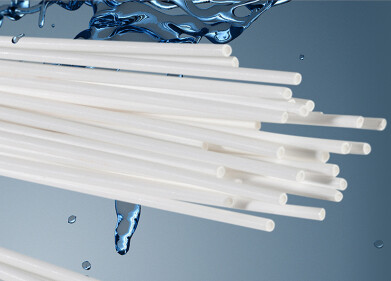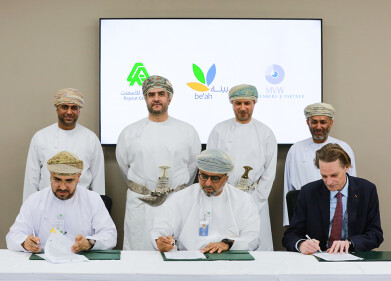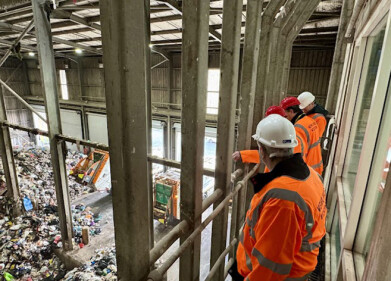Waste management
Subcontinent Looks for Clean Ways to Dispose of Waste
May 30 2013
According to estimates by the Indian Ministry of Urban Development (MoUD), the urban population of India produces between 0.2 and 0.6 kg of waste per head each day. Over the year municipal waste from the country´s 1.2 billion inhabitants accumulates to a total of 78.14 million tonnes (2011). India´s growing population and the increasing prosperity of many Indians will, according to the MoUD experts, lead to a further increase in waste flows of around five percent per year. In order to tackle these major challenges of waste management, India needs modern, environmentally-friendly and effective solutions. All of which spells good business potential for the exhibitors at IFAT (India), as they showcase their products and services at the exhibition between October 24 and 26, 2013, at the Bombay Exhibition Center (BEC) in Mumbai.
One way of dealing with the mountains of waste produced on the subcontinent is through thermal combustion in waste-incineration plants. Engineer Ekkehart Gartner of Martin GmbH is sure that this method of waste disposal "is not only the best way to protect the climate, the soil and the ground water, it also makes a contribution towards satisfying the enormous demand for energy that there is in the country." Martin GmbH, which is headquartered in Munich, specialises in building waste-to-energy plant and is one of the international exhibitors at IFAT India. Gartner adds: "For us this new exhibition is a good opportunity to present our technologies to potential customers, in particular those from local and regional government. Also we hope this way to come into contact with local firms who, as our partners, could get involved in realising the waste-incineration plants."
Until now exploiting waste for energy in India has not really got off the ground. According to Gartner this is because on the one hand the calorific value of Indian domestic waste is low in comparison to European or American waste. On the other, India has no directives which encourage more efficient management of household waste through incineration.
Increasingly, Indian central and local government is looking towards private-public partnerships (PPPs) for the realisation of waste-management projects. For Ajay Popat, CEO of Ion Exchange WaterLeau Ltd, joint ventures, apart from licensing of technologies from companies in environmental business in developed countries, too can help promote faster market penetration of modern environmental technologies in India. Ion Exchange (India) Ltd has a joint venture with the Belgian Waterleau Group and several licensing agreements with companies in Europe and USA to offer ‘State of the art’ technologies to treat and recycle waste from industries, municipalities and communities. This IFAT INDIA exhibitor offers its broad spectrum of plant and services mainly on the Asian market, in the areas of waste water, refuse, exhaust air and renewable energies. "Particularly promising are joint ventures in which experienced international players link up with the financial and management qualities of an Indian partner – above all as these mixed-nationality joint ventures are in future being permitted more and more to take part in government calls to tender," reports Popat. If the Indian environmental market is to be boosted, then, he believes, it is also important to raise awareness about the technologies and processes that are now available: "International conferences and trade fairs such as IFAT INDIA are a good vehicle for raising public awareness about the challenges of waste management in India, and of informing them about current solutions."
Events
Apr 08 2025 Targi Kielce, Poland
Apr 08 2025 Bahrain
Apr 10 2025 Beijing, China
Apr 10 2025 Beijing, China
Apr 15 2025 Moscow, Russia














